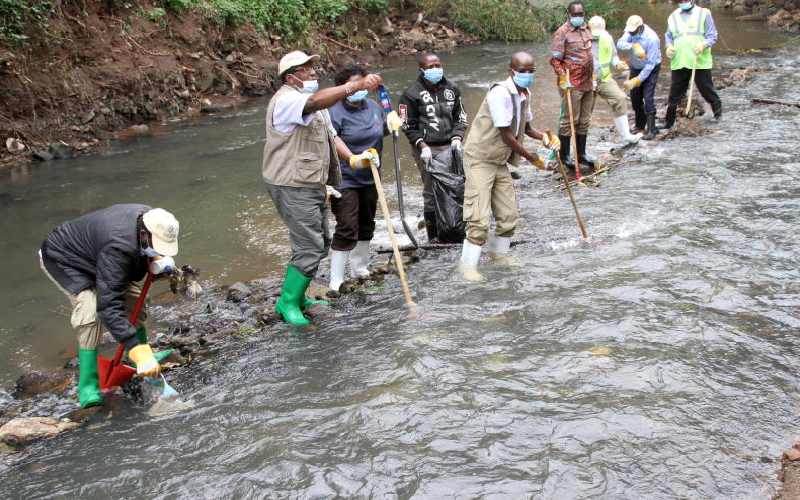×
The Standard e-Paper
Kenya’s Boldest Voice

Environment and Forestry Cabinet Secretary Keriako Tobiko (second left) with a team from National Environment Management Authority (NEMA) in a cleanup exercise of Nairobi River yesterday. [David Njaaga, Standard]
The Michuki Memorial Park in Nairobi is in its final phase of restoration and will be reopened to the public soon, Environment and Forestry Cabinet Secretary Keriako Tobiko has said.